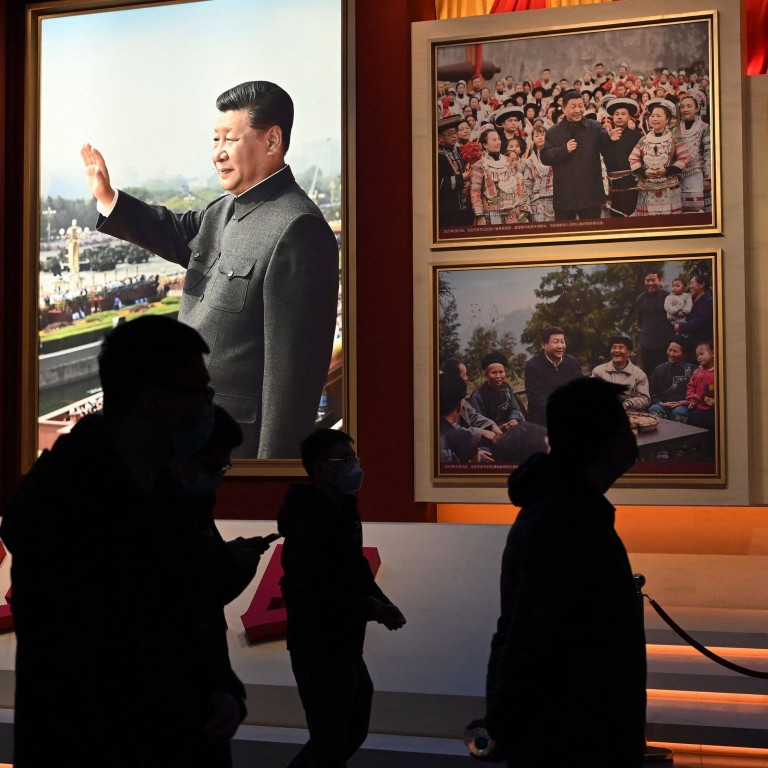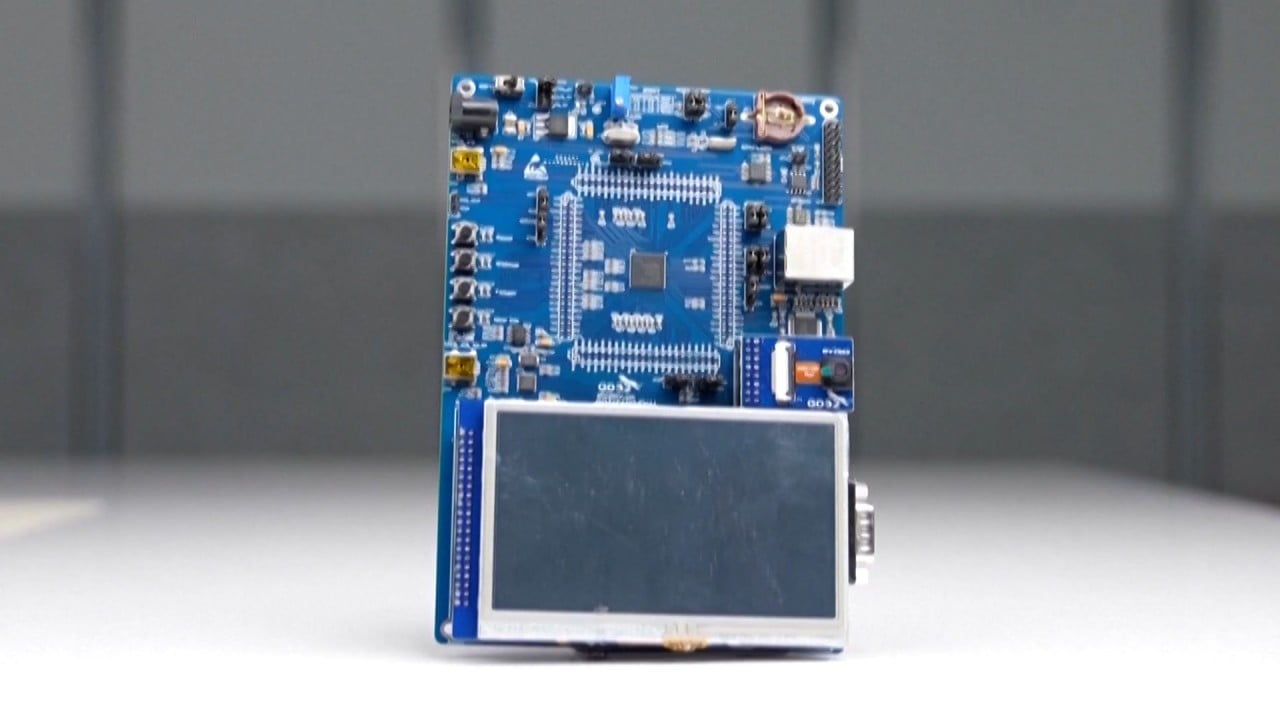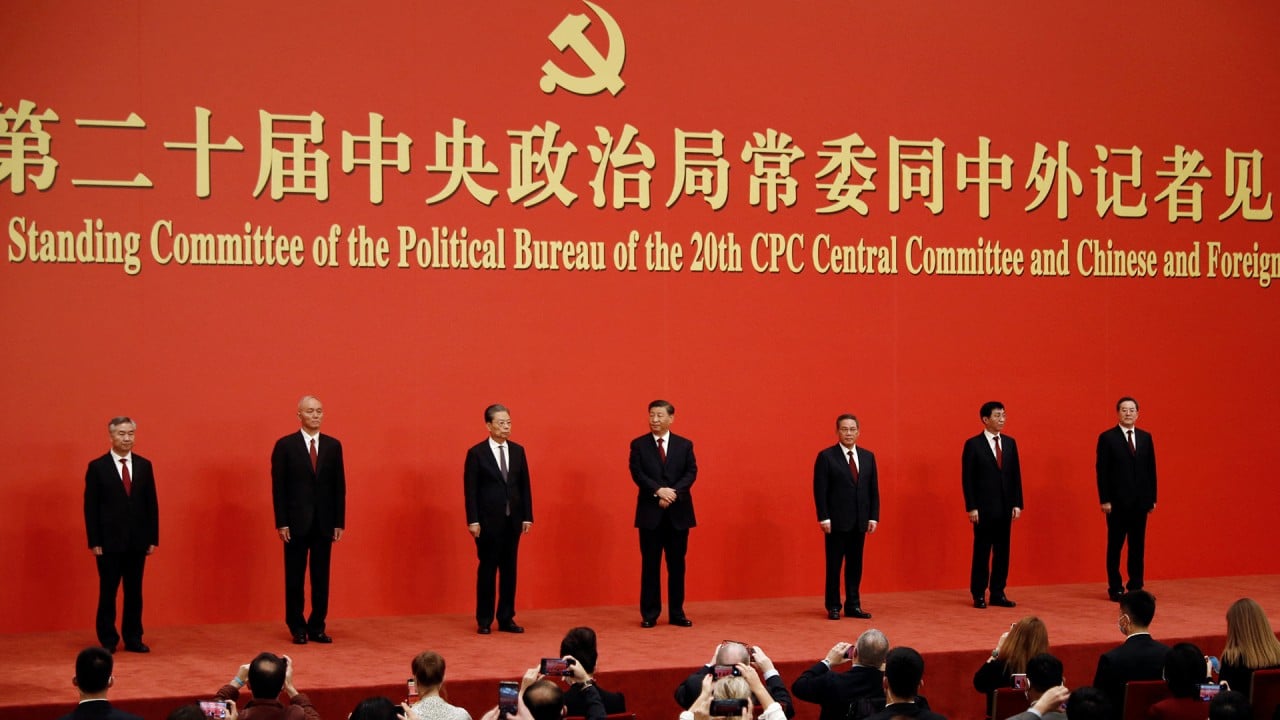
China’s ‘two sessions’: Xi Jinping seen to tighten Communist Party grip with State Council reform, choice of new leaders
- NPC to give stamp of legitimacy to State Council reform plan and new leadership line-up
- The plan is expected to include the setting up of two new commissions for finance and technology, analyst says
The changes were part of President Xi Jinping’s efforts to strengthen the ruling Communist Party’s role in top-level decision making, and tighten its control over the crucial finance and technology sectors, observers said.
State Council secretary general Xiao Jie will brief lawmakers about the reform plan on Tuesday, according to the official schedule of the 14th National People’s Congress (NPC). NPC deputies will vote on the plan on Friday.
This comes with a new slate of top government leaders, including the premier, expected to be officially named and confirmed this weekend.
Both the reforms and the new leadership have been approved by party elites, and the voting by the NPC deputies would give them the final stamp of legitimacy.
While few details have been disclosed about the forthcoming changes, state news agency Xinhua quoted Xi as saying that the reform plan aimed to “deepen structural reform of the financial sector” and boost the party’s “unified leadership over science and technology”.
Xie Maosong, senior researcher at the National Institute of Strategic Studies at Beijing’s Tsinghua University, said the plan was likely to include the setting up of two new commissions under the State Council, for finance and science and technology development.
“We may see the establishment of these two new commissions as the party consolidates its power,” Xie said.
“They will [feature] the same people from the corresponding offices of the Communist Party, and these will be run as a single office – a typical set-up nowadays.”
Deng Yuwen, an independent researcher at the Centre for China Analysis and Strategy in the United States, said the aim of the reform package was to further consolidate the party’s governance, ensuring that it held all major decision-making power, with the State Council and its ministries functioning as executive bodies.
Chinese Premier Li Keqiang bows out with appeal for economic recovery
“As the party committees [and] commissions will be given the overall decision-making mandate in this restructuring plan, there will be only execution roles left for the State Council’s corresponding structure,” Deng said.
“This will sort out the friction between the party Central Committee and the State Council [as observed] in past years, as the power hierarchy will be clearly defined by the plan and people in the system will have no choice but to follow.
“While [these moves] are all known as institutional reform, what Xi has done can be described as the opposite of [such reforms pushed by] some of his predecessors.
“[Previous leaders like] Deng Xiaoping, Jiang Zemin and Hu Jintao sought separation of party and state in their reforms. But Xi is putting back the structure that will see party commissions setting [policy] directions, leaving the ministries responsible for their execution, the budgets and implementation.”
“Beijing has realised that it needs stronger coordination within the bureaucracy for long-term self-reliance projects like semiconductor development,” he said.
The Ministry of Industry and Information Technology, and Ministry of Science and Technology were likely to be the targets of the reform plan, he added.
Beijing’s focus on science and technology was also reflected in the central government’s new budget for 2023.
A draft budget tabled by the Ministry of Finance on Sunday proposed a 2 per cent increase in spending on science and technology to 328 billion yuan (US$47.5 billion). NPC deputies will vote on the budget next Monday.
The move to elevate the Hong Kong and Macau Affairs Office, from its current status as a ministerial-level administrative agency of the State Council, is seen to underscore the city’s importance while also strengthening party oversight.
Meet the men in line to head Beijing’s oversight of Hong Kong and Macau
Xi has spearheaded two rounds of institutional reforms – in 2013 and 2018 – since coming to power as party general secretary in 2012.
The last overhaul was extensive, with the setting up of four party groups overseeing disciplinary inspection, law and order, auditing and education. He also set up several leading groups – covering areas from foreign affairs to health and security – centralising power in the hands of party apparatchiks.
Besides Friday’s reform plan vote, NPC deputies will also vote on Saturday and Sunday to endorse a new State Council leadership, completing a five-yearly power reshuffle.
Other vice-premier candidates include He Lifeng, Liu Guozhong and Zhang Guoqing. All three won seats on the policymaking Politburo at the party’s five-yearly national congress in October, confirming their rise to the top leadership.
General Li Shangfu is expected to become the new defence minister, succeeding Wei Fenghe who will retire.
Zhu Hexin, chairman of the state-run financial conglomerate Citic Group Corp, is tipped to become the new governor of the People’s Bank of China, the country’s central bank, in place of the outgoing Yi Gang.
All are key allies of Xi, who is himself poised to secure an unprecedented third five-year term as the country’s president and chairman of its Central Military Commission, after winning a historic third term as party leader at the 20th congress in October.



